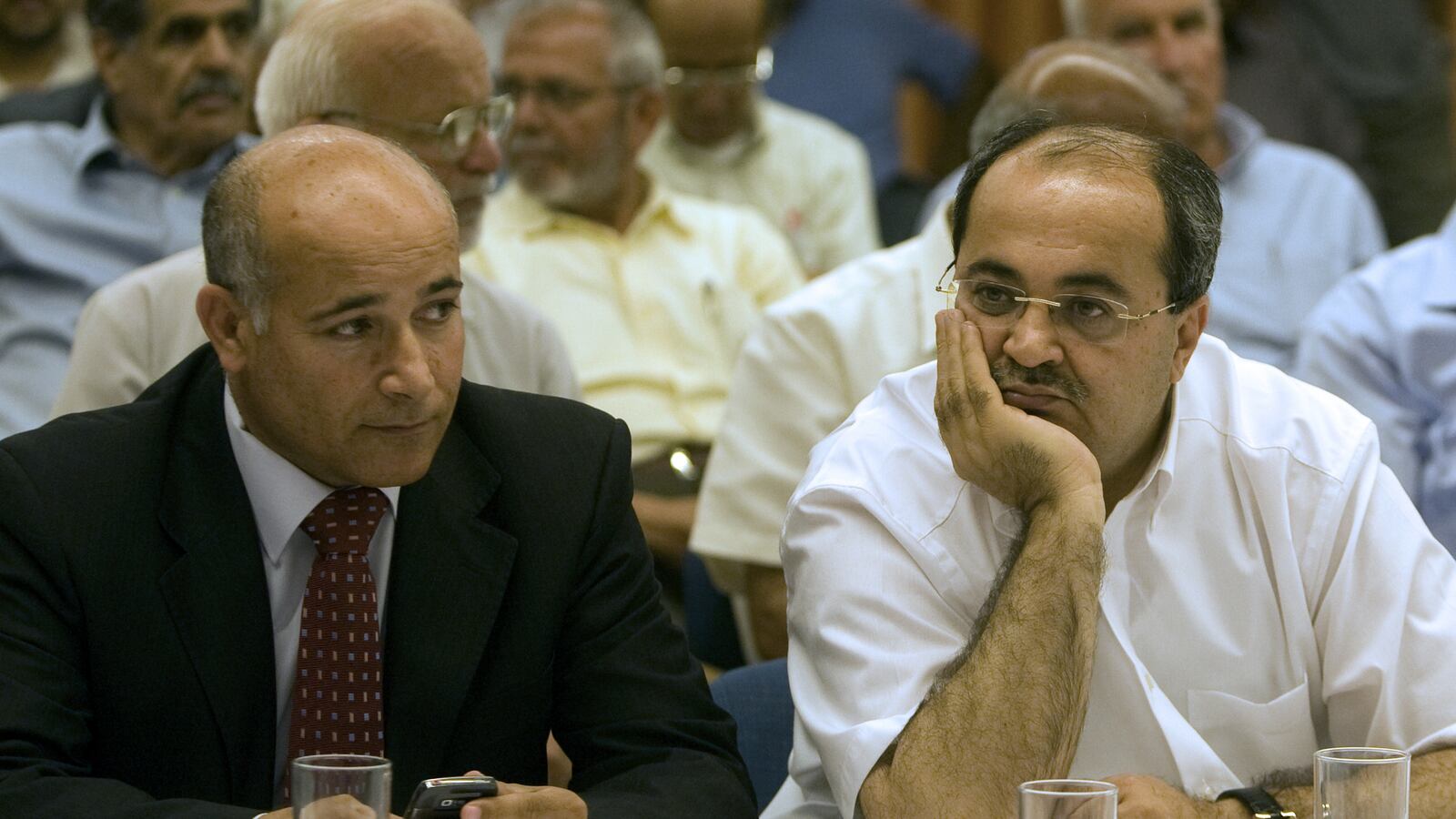Minority voices in Israel could be muzzled if Knesset members vote to increase the volume of votes needed for political parties to be represented in the government.
Recently, two bills to amend Israel's Basic Law: The Government passed first readings in the Knesset. The bills' proposals include, among other things, doubling the election threshold from two to four percent.

Ostensibly, the purpose of this provision is to improve Israeli governance by consolidating the smallest political parties and simplifying the parliamentary map. Practically, however, raising the election threshold could dramatically and adversely affect the representation of minorities in the Knesset—one of the mainstays of Israel's delicate electoral system.
In national elections, political parties that garner enough votes to cross the threshold are given a proportionate number of the Knesset's 120 seats.
Anyone remotely familiar with Israel’s parliamentary system will agree that it could benefit from some reform. Improving governance is a laudable undertaking, and it is possible that raising the election thresholds will contribute to that effort. But doing so without taking concrete steps to safeguard the representation of minorities in the Knesset will have devastating effects on Israel's democratic system and the delicate relationship between Israel's Jewish majority and Arab minority.
Arab citizens of Israel are currently represented by three political parties in the Knesset: Balad, United Arab List-Ta'al, and Hadash (a mixed Jewish and Arab party). Although all three of these parties advocate for the communal rights and interests of the Arab minority, there are fundamental differences in their political ideologies. None of them would have entered the Knesset had the threshold been four percent. A Knesset without Arab representation would have catastrophic ramifications for Israeli society.
The bills' proponents' argue that the Arab parties should just unite. But the Arab public (20 percent of the population) includes a range of groups and opinions. It has the same right to choose among a diversity of ideology as its Jewish counterparts. The diversity, of course, need not be limitless, or even as varied as that of the majority, but history has demonstrated a stable diversity of three to four parties. Forcing the parties to unite denies this native minority group its right to adequate representation.
Israel's other large minority group, the ultra-Orthodox (haredim) are represented by two different parties: Shas, which represents Mizrahi and Sephardic haredim, and United Torah Judaism (UTJ), which represents Ashkenzi haredim. While at their current levels, both of these parties would meet a four percent threshold, this might not always be the case. UTJ, for example, is a fragile allegiance of two smaller parties, Degel HaTorah and Agudat Yisrael, which split in 2004 and realigned in 2006. A higher threshold would force the two to remain in allegiance even amidst serious departures in ideologies. Despite their numbers, ultra-Orthodox Ashkenazi voters would be forced to continue voting for one party—perhaps Shas—in order to achieve proportional representation in the Knesset.
Raising the threshold also results is the invalidation of many legitimate votes (in the last elections in Israel, seven percent of votes were discarded because they were for parties that did not pass the threshold). The seats represented by these votes are split among the qualifying parties pro rata, a process that gives intermediate and large parties political power disproportionate to their electoral results. There are even indications that raising the election thresholds will actually decrease voter turnout, as individuals don't want to risk their votes being used to strengthen the larger parties.
Despite all these problems, it is possible that raising the threshold will yield positive effects on overall governance, but only if concurrent steps are taken to ensure adequate protection for minorities' rights to representation. Indeed, many other parliamentary states have electoral thresholds of four to five percent, but as a result of either systemic differences in the electoral systems or specific adjustments to the process, national minority rights to representation are protected.
In some cases the solution is as simple as local representation; separating a state into electoral regions means that a party can enter parliament by surpassing the threshold in any given region. Other countries employ mixed systems that combine proportional voting and first-past-the-post voting to allow representatives elected first-past-the-post to be exempted from the threshold. Mixed systems may also protect small parties by maintaining different thresholds for individual parties than for joint lists of united parties.
An alternate approach to the challenge focuses specifically on the rights of national minorities. In Denmark, parties that represent two specific districts whose populations have non-Danish identities (Greenland and the Faroe Islands) are exempt from the electoral threshold, as are parties representing ethnic minorities in Poland's parliament. Romania, on the other hand, has a different electoral threshold for minority parties. And in Australia, votes for minority parties that do not cross the threshold can be passed on to different parties in accordance with the voters' preferences.
The Knesset's Constitution Law and Justice Committee, chaired by MK David Rotem (Likud Beiteinu), began discussing the governance bills last week, and will continue doing so in the coming weeks. The hearings present both a rare opportunity to bring better governance to Israel and a looming threat to the sustainability of its democratic system. The committee's recommendations and the final wording of the amendments will determine the future of Israel's relationship with its minority groups. Let's hope they get it right.






